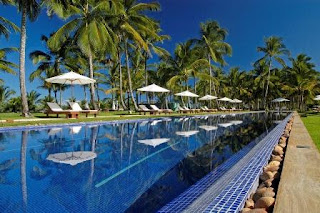Tutorial Foursquare for Hotelier
Posted by Alain Classe on 2011, August 22 ·
 Foursquare is one of the names talked about and yet which few people know what is going on. Foursquare is the first fully mobile application that works on all smartphones using geolocation: to make his “checkin” your customer must be there.
Foursquare is one of the names talked about and yet which few people know what is going on. Foursquare is the first fully mobile application that works on all smartphones using geolocation: to make his “checkin” your customer must be there.Designed as a game, Foursquare is very entertaining for its members, with notions of steps climbed as and when it is used and evidenced by badges. These badges are earned primarily through “checkins” arriving at the restaurant or hotel, a quick search on Foursquare brings up a list of places to register.
Foursquare, today more than 10 million members worldwide, 3 million of checkins per day, 500,000 businesses using Foursquare professionally.
To be part of those companies using Foursquare professionally, this is what is needed:
1. Claim his place or attraction
• Connect to Foursquare or create a personal profile if necessary
• Search the name of the hotel
• Once on the hotel card, click on “Do you manage this venue ? Claim here “
• Monitor the process and select the preferred method of verification by phone, mail …
2. Dclare its employees “manager” or “employee”
The person who claimed the place is automatically “manager”. To be declared a “manager” or “employee” by the first manager, it is imperative to have a user profile. Rights are different:
• “employees” can only edit
• Te content of the page
• View statistics
• Enable and disable special
• “managers” can also add special offers •
• Add new “employee” or “manager”
3. Create special types of Event
These special offers are visible not only to users who have produced their checkin, but also those nearby but have not made their checkin to push them to do so.
• Provides for friends only
• Offers reserved for a number of simultaneous visitors (15 people on a period of 2 hours)
• Provides flash
• Provides accessible only when a user first checkin
• Provides access on terms that you have pre-defined
• Offer reserved for frequent visitors
• -* offers reserved for “mayor” (self-employed person who made the most checkins in the last 60 days)
• Among the offers put up by hotels for users Foursquare:
• Upgrade available (depending on availability)
• A complimentary breakfast
• Free wifi
• Offered a drink at the bar
• Late checkout offered
• Generate incremental incomes with specials deals for an updgrade ( for 50 CHF you get a Junior Suite )
4. Foursquare check-in here
By putting a sticker or placard “on the door or at the reception, bar, restaurant …, Foursquare users are informed that the hotel is within their reach and they can probably receive a special offer
Foursquare push users present in the hotel to do their “checkin” increases awareness of its establishment on the Internet, “checkin” being relayed to the user’s choice by email or Foursquare on social networks:
• Foursquare: his friends are informed
• Facebook: information is shared, with or without commentary on the Facebook wall user Foursquare
• Twitter: information is shared on the user’s Twitter page Foursquare
• Foursquare on the page of the establishment
• On the page of Foursquare’s user
5. Train your Staff
Explain to your Staff what is Foursquare. If your staff is not aware you risk to get some complains.
Create Special Code and communicaeing this simple code to its staff, so staff know what it can offer to benefit the customer who shows him his smartphone.
You need to be aware regarding the mode of spread :
With one one offer, you reach hundreds or potentially thousands of potential customers.
6. See its statistics
The statistics are accessible in real time and allow to know, especially after the posting of a special offer:
• The number of checkins per day
• Recent visitors
• The gender
• The most frequent visitors
• Hours the most popular
• The amount of checkins relayed on Facebook or Twitter
Chains & brands
Chains with multiple institutions can benefit from their own brand of Foursquare.
By creating a page “brand” is an opportunity to
• Actively communicate with visitors,
• Share information, tips and tricks,
• To have “followers”
• Create custom buttons,
• Benefit from a specific url foursquare.com type / brand
• To increase brand awareness, providing each institution promote its brand and vice versa
Major brands have already taken advantage of this feature.
• The New York Times
• Louis Vuitton
• Algonquin Hotel
• Four Points by Sheraton
Conclusion
Foursquare can reach a customer “connected” and who also has a social life outside his own home.
The fact to manage his page Foursquare professionally is free and takes only a few minutes. As for offers, they only apply to customers consuming.
Althought if you want to use Foursquare like any other Socia Media Networks, your Hotel Management need to be sure you get Human Ressources to manage this account.
Do it professionally or don’t do it,



















































